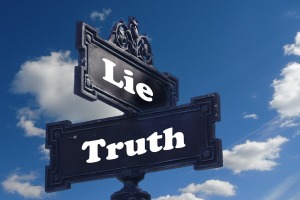Who Cares How Taylor Swift Votes?

I never thought in my wildest dreams I'd talk about Taylor Swift on BreakPoint. Just look what you made me do.
It's not exactly a secret where the entertainment industry stands on conservative politics, especially President Trump. With few exceptions, this president has only intensified the full opposition by actors, producers, singers, and performers of all stripes to the GOP. But one pop singer—the world's most successful pop singer, in fact—has remained strangely quiet.
A recent editorial in The Guardian called Taylor Swift an "envoy for [Donald] Trump's values," not because she's ever expressed public support for the president, but because she hasn't said much of anything about him at all. Swift, you see, isn't much for politics. She hasn't joined other entertainers in denouncing Trump with sufficient enthusiasm. And so that's gotten her in trouble.
Her critic in The Guardian writes that "[Swift's] silence is striking, highlighting the parallels between the singer and the president: their adept use of social media to foster a diehard support base; their solipsism; their laser focus on the bottom line; their support among the 'alt-right.'"
This is just the latest in a drumbeat of demands that the 27-year-old singer take a side in this current political scrum. Some have gone much further, suggesting that she's a secret admirer not only of President Trump, but of the less savory among his supporters. Reports surfaced last year that Neo-Nazis and other racist groups have adopted the tall, blonde pop artist as an unofficial mascot. Some even called her an "Aryan goddess," and claim that she has secret Nazi sympathies—a charge she has flatly denied.
Still, with no college education and no political experience, this young woman is expected—purely because of her fame—to tell her millions of fans not only how to vote, but which side of the political aisle are the good guys and which are the bad.
Swift, for her part, has consistently refused. "I chose to do music," she's said before. Last year before the election, Swift clarified, "I don't talk about politics because it might influence other people. And I don't think that I know enough yet in life to be telling other people who to vote for."
Well, good for her!
But the burning question through all of this is why on earth we should care about Taylor Swift's political views! It's ridiculous that so many people are obsessed with getting celebrities to take sides on candidates and policies. But we've got to move beyond this.
First, celebrities aren't specially endowed with insights into good government. They have the right to express their views like everyone else. But the idea that somehow what they say matters more—well that just proves Neil Postman was right, we are amused to death.
So our celebrities have become our experts and our heroes. That's a bad idea.
Also this unrealistic expectation of celebrities reveals our culture's terrible spiritual thirst. Particularly its lack of religious and moral authority. Celebrities are, for too many, the closest things we have to gods. They are idols, pure and simple.
But there's still another, and yet more practical reason why setting our political and social compasses by the opinions of entertainers is a bad idea: It poisons entertainment itself. There must be a space that exists outside of politics if our culture is to remain sane—a place where we can set aside our debates and just live together as human beings.
I'm no fan of most pop music, but we do need cultural places where we can live together civilly in our society that are not dominated by political rancor. If everything becomes just another place for a party power struggle, we'll stop seeing each other first as friends, neighbors and fellow citizens, and only look at one another instead as members of opposing armies.
If we can't figure out a better source for political insights than Taylor Swift or the other celebrities that we already pay too much attention to, we're in trouble, trouble, trouble. See what I did there?!
Originally posted at BreakPoint.




























